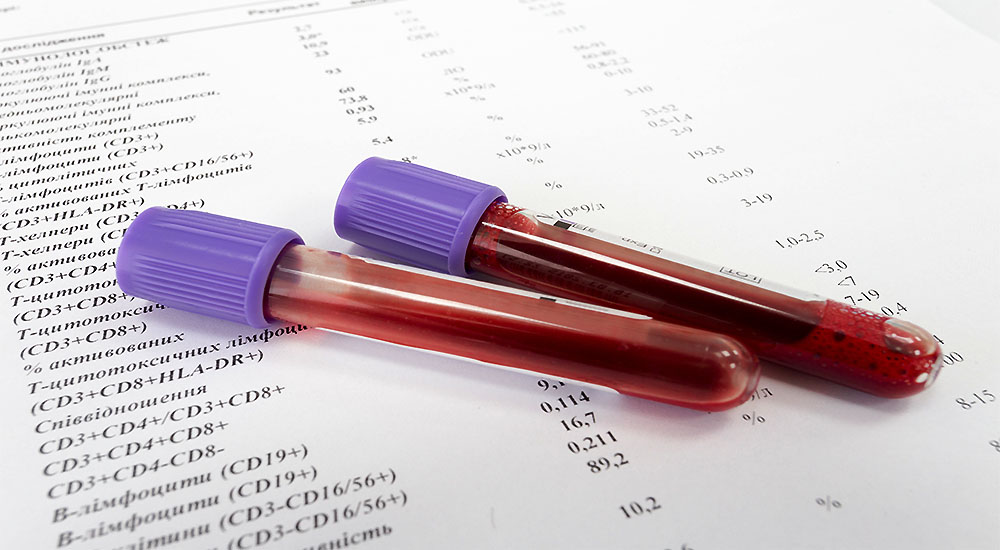Breast Cancer Risk Factors and Prevention Tips

Breast Cancer Risk Factors and Prevention Tips
Last week we published the first part of our breast cancer awareness blog. Below, as promised, is the second installment. If you missed the first part, it’s here.
Saturated Fat
Despite the cattleman’s association trying to sell us on the notion saturated fat is “just fine”, a major study from 2011 followed 4,000 women with breast cancer over the course of seven years – sadly not all of them survived the study. The conclusion? The women who died had two things in common:
- saturated fat intake – the women who ate the most saturated fat after their breast cancer diagnosis increased their risk of dying during the study period by 41%.
- trans-fats. An elevated trans-fat intake was associated with a 78% increase risk of death from all causes.
Where is saturated fat found in our diet?
Raise your hand if the first thing you thought of was beef. If you raised your hand you’re in good company, but still wrong. The National Cancer Institute tells us the top 5 are:
1. cheese – (dairy)
2. pizza – more cheese (dairy)
3. flour desserts – cookies, cakes, and doughnuts (gluten, dairy, and sugar)
4. ice cream (dairy again)
5. chicken – What? Really? More saturated fat than beef? Yup! It turns out chicken is far from a low-fat food, even when the skin is removed and you steam it.
Where’s the beef?
6. pork
7. burgers (beef)
8. beef
9. reduced-fat milk (dairy again) – here’s an interesting factoid: 2% milk is 2% fat by weight, but by calories, which is what actually matters, it’s 30% fat.
Where do you find trans-fats?
Animal fat, dairy products, deep-fried foods, pie crust (shortening), frosting, packaged baked goods such as cakes and cookies, non-dairy creamer, microwave popcorn, creamy frozen drinks (fast food variety).
Good News
Diet and lifestyle choices not only can help prevent breast cancer but even if you’re diagnosed with it, the same choices can improve your survival. Tumors grow slowly. They can be present for years, even decades before they’re diagnosed. That means you can make a change now, today, which could effectively prevent a tumor from growing into eventual cancer. Or you can truly prevent the tumor that currently does not exist.
A study out of New York supported this. They began with a thousand women with breast cancer, though not all survived. Again, the dietary analysis was on the table and this is what they concluded: Plant-based diets high in fruits, vegetables, and whole grains contain nutrients that impart a beneficial effect on survival rates for those with breast cancer.
Which nutrients in your diet cut your risk of death in half?
We’ve known of the phytonutrients (“Phyto” just means plants) and antioxidants in plants for a long time. We now see dietary lignans are associated with improved survival. Amongst a group of postmenopausal women with breast cancer, it seemed to cut mortality in half.
Where can you find lignans? Flaxseeds are the big winner when it comes to lignans, followed by sesame seeds and superfoods like kale and other cruciferous veggies.
Sugar and Cancer = Best Friends
The dangers associated with eating sugar have become so well established that for the first time ever U.S. dietary guidelines have recommended its restriction. The recent 2015-2020 guidelines recommend limiting sugar intake to not more than 10% of your daily calories.
It’s estimated that due to sugar’s association with chronic diseases, including obesity, diabetes, heart disease and cancer, up to 40% of the U.S.’s health expenditures to deal with a variety of chronic disease is directly related to excess sugar consumption. The price tag? Estimated at $1 trillion each year.
Chronic inflammation is a direct consequence of sugar ingestion, most especially in the form of high fructose corn syrup. Such inflammation promotes cancer, including breast cancer. The MD Anderson Cancer Center located at the University of Texas released research that refined sugar not only increases the risk of breast cancer but it also promotes the spreading of tumors to other organs, called metastasis.
How can you starve cancer cells? Simply depriving them of their food source. What is their food source? Primarily sugar, and excess animal protein.
Top 5 Anti-cancer foods
- Seeds: organic flax and chia
- Nuts: organic walnuts, peanuts, pecans
- Vegetables: organic dark green leafy vegetables, some of the best are the crucifers
- Fruit: organic berries and citrus
- Beans and legumes: organic black beans, garbanzo beans
Phytates found in beans, legumes, nuts, whole grains, and seeds play an important anti-cancer role. If cancer is to develop it must grow and spread, invading healthy surrounding tissue. Cancer cells use tumor invasion enzymes called matrix metalloproteinases to provide their invasion capabilities.
Research supports phytates inhibit invasion, and it is now believed that action is accomplished through its ability to block the invasion enzyme just mentioned.
Inhibition of the growth of cancer cells due to phytates has been seen in a wide variety of cancers including estrogen receptor-positive and negative breast cancer cells, cervical cancer, prostate cancer, liver, pancreatic, and melanomas. And, it has no negative effect on normal healthy tissue – no drug can say that!
A study was performed with fourteen women suffering with invasive breast cancer. They were divided into two groups: a placebo group and a phytate group. At the end of six months the phytate group had a better quality of life, they suffered fewer symptoms from chemotherapy and their immune systems did not weaken as is so typically seen as a result of chemotherapy. In fact that is the scariest aspect of chemotherapy, the resultant weakening of the very system, the immune system, you are trying to strengthen.
Phytates have been given a reputation, erroneously, as having an anti-nutrient effect as it was thought they could decrease calcium levels. That is untrue unless the individual has a diet very poor in nutrients overall. In fact, phytates have been observed to be protective against osteoporosis, therefore calcium saving.
Are your Vitamin D levels protecting you from Cancer?
A study found vitamin D to work as well at killing cancer cells as the toxic breast cancer drug Tamoxifen. Vitamin D has no side effects and cost a mere fraction of any drug.
It is estimated a woman with breast cancer should strive to get her vitamin D levels to between 70 and 100 ng/ml. A meta-analysis published in Anticancer Research, 2014, discovered women diagnosed with breast cancer who had higher vitamin D levels (not really high – the level was 30 ng/ml) were twice as likely to survive as compared to women with low levels (17 ng/ml- the average level found in U.S. women with breast cancer).
It is considered Vitamin D works synergistically with every cancer treatment and has no adverse effects. Please get your D levels tested – and remember to take D3 with K2. At Root Cause Medical, we use this vitamin D3/K2 supplement.
Does Cancer Screening Save Live?
According to a recent analysis, it’s “unclear” whether screening saves lives, and researchers warn that claiming it does is “misleading.” Earlier this year, January 2016, Newsweek had this to say about cancer screening and the fact it’s conventionally touted as a part of cancer prevention when it does not do so.
“The problem, they say, is that the ubiquitous adage is based on the fact that deaths from the target disease may decline but fails to take into account deaths linked to factors related to the screening itself. Sure, screening for prostate cancer might reduce the incidence of death from that specific disease, but does it reduce overall mortality for the person who got the screening? Maybe not.
For example, prostate cancer screening is known to return “numerous” false positives … and contributes to over 1 million prostate biopsies a year. The procedure is “associated with serious harms, including admission to hospital and death.” What’s more, men diagnosed with prostate cancer are “more likely to have a heart attack or commit suicide in the year after diagnosis” … In both cases, the deaths aren’t due to cancer itself but rather are linked to the screening.
The same holds true for breast cancer screening and colorectal cancer screening:
60 % of women who undergo regular mammography screening for 10 years receive a false positive at some point, leading to unnecessary distress and treatment, which can have serious side effects. Studies have also shown that routine mammograms have no effect on death rates.
As noted by Reuters: “These tests avert just 1 breast cancer death for every 1,000 women screened. “There used to be ads saying if a woman hadn’t had a mammogram, she needed more than her breasts examined,” Dr. Prasad said. “The fact that the medical profession promoted screening so strongly when it was always a balancing act when it was always a personal choice, is really shameful.”
A study looking at colorectal cancer screening found 128 cancer deaths among every 10,000 people who received screening, compared to 192 cancer deaths among every 10,000 individuals who didn’t get screened. While there were fewer cancer deaths among those screened, this link completely disappeared when they looked at all-cause mortality. When death from all causes was included, there was no meaningful difference between the two groups.
In an email to Reuters, one doctor had this to say: “The take-home message is after decades of research we have not found clear evidence that screening saves lives, but clear evidence that screening harms many.”
There is a great deal more information about mammograms you can read in my earlier blog here and video here.
I often tell patients what they get from me is the unvarnished truth as I know it to be at the time. One of the reasons I “tell it like it is” is I find patients get better results. A study confirmed this. It found stricter diets see more acceptance from patients because they work better! Greater adherence meets with better, faster disease reversal.
There was a study where people felt so great on a plant-based diet they refused to go back to their “old” diet.
In the upcoming weeks and months, I’ll be sharing even more good news about cancer and how you can be in control of this scary disease. We will discuss other types of cancer including lung cancer, colorectal cancer, and more.
Was this information helpful? Did it make cancer seem a bit more in your control? Please share this post plus last week’s with others – it’s information everyone needs to know.
Do you want to prevent cancer and other chronic degenerative diseases? We can help. Through root cause, medicine will tailor customized programs to our patients. The reason one person’s immune system is at risk for developing cancer is different, from a root cause medicine approach, from another individual. Let us help you to optimize your body’s function.
Do you need help with your health?
We have the diagnostic and testing tools, the clinical experience, and a different medical approach to discovering the root cause of why you have the symptoms that are bothering you. As long as you are ready to make some dietary and lifestyle changes, we can help you. We will "hold your hand" through the changes, step by step, to make each step an easy one. We are located in Clearwater, FL, at 1000 S Ft Harrison, at the corner of Ft. Harrison Ave. and Magnolia St. There is plenty of parking space directly accessible from Ft Harrison. If it is not convenient for you to come to Root Cause Medical Clinic, we offer telehealth/telemedicine consultations to residents of certain states. Call us for details.
Contact us for a Consultation – Call 727-335-0400

Dr. Vikki Petersen DC. CCN
Founder of Root Cause Medical Clinic
Certified Functional Medicine Practitioner
Dr Vikki Petersen is a public speaker, author of two books, several eBooks and creates cutting edge content for her YouTube community. Dr Vikki is committed to bringing Root Cause Medicine and its unique approach to restoring health naturally to the world.
Ask a Doctor
Have a health concern you'd like to speak with a doctor about? Or just want clarity on a subject? Ask Us!


